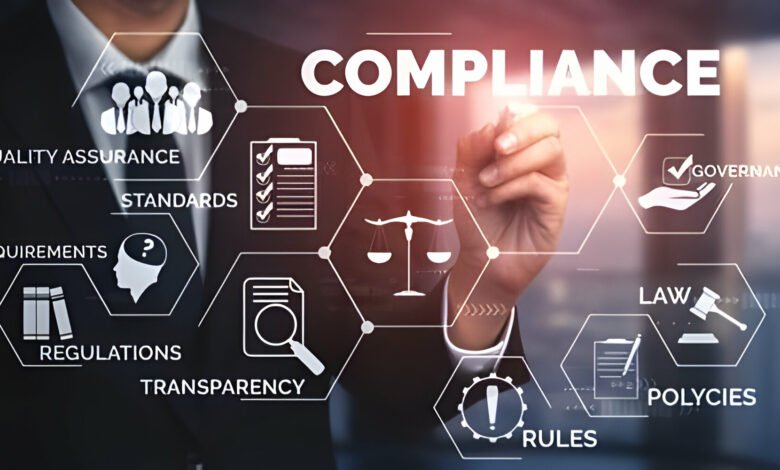Innovative Approaches to Global Compliance in Fintech: Insights from London

Introduction: The Need for Innovation in Global Compliance
The complexity of global compliance requires innovative approaches to ensure adherence to diverse regulatory requirements. London’s fintech firms are leveraging cutting-edge technologies and strategies to navigate these challenges and maintain compliance across different jurisdictions.
Key Innovations in Global Compliance
Regulatory Technology (RegTech)
RegTech solutions provide automated tools for managing compliance, reducing the burden on compliance teams.
- Example: Revolut’s Use of RegTech: Revolut employs RegTech solutions to automate compliance monitoring, reporting, and risk management. These tools help Revolut stay compliant with regulations across multiple jurisdictions and streamline its compliance processes.
Artificial Intelligence (AI) and Machine Learning
AI and machine learning can analyze large volumes of data to detect compliance risks and ensure adherence to regulations.
- Case Study: Monzo’s AI-Driven Compliance: Monzo uses AI to monitor transactions and detect anomalies that may indicate non-compliance. This AI-driven approach enhances the accuracy and efficiency of Monzo’s compliance efforts.
Benefits of Innovative Compliance Solutions
Enhanced Efficiency
Automation and advanced analytics reduce the time and resources required for compliance, allowing fintech companies to focus on core activities.
- Example: TransferWise’s Automated Compliance: TransferWise uses automated compliance tools to streamline its compliance processes. This efficiency allows TransferWise to focus on providing high-quality financial services to its customers.
Improved Accuracy
AI and machine learning improve the accuracy of compliance monitoring and reporting, reducing the risk of errors.
- Case Study: AI-Enhanced Accuracy at HSBC: HSBC employs AI to analyze transaction data and ensure compliance with global regulations. This technology improves the accuracy of HSBC’s compliance efforts, minimizing the risk of regulatory breaches.
Challenges and Considerations
Data Privacy and Security
Implementing advanced technologies for compliance requires ensuring the privacy and security of customer data.
- Example: Data Encryption at Barclays: Barclays uses advanced encryption techniques to protect customer data used in its AI-driven compliance system. This ensures that sensitive information remains secure and compliant with data protection regulations.
Integration with Existing Systems
Integrating new compliance technologies with existing systems can be challenging but is essential for seamless operations.
- Case Study: System Integration at Revolut: Revolut has invested in integrating its RegTech solutions with existing legacy systems. This integration ensures a seamless flow of data and enhances the overall efficiency of Revolut’s compliance processes.
Real-World Applications of Innovative Compliance Strategies
Cross-Border Data Transfers
Innovative technologies facilitate secure and compliant cross-border data transfers, ensuring adherence to data protection laws.
- Example: TransferWise’s Data Transfer Solutions: TransferWise uses advanced encryption and data anonymization techniques to ensure compliant cross-border data transfers. This allows TransferWise to operate seamlessly across different jurisdictions.
Continuous Monitoring and Reporting
Continuous monitoring and real-time reporting enhance the ability to detect and respond to compliance risks.
- Case Study: Real-Time Compliance at Monzo: Monzo employs real-time monitoring tools to track transactions and ensure compliance. This immediate detection allows Monzo to address compliance issues promptly and maintain regulatory adherence.
Future Trends in Global Compliance
Blockchain for Compliance
Blockchain technology offers transparency and immutability, making it a valuable tool for compliance.
- Example: Blockchain Compliance at HSBC: HSBC is exploring the use of blockchain to enhance transparency and traceability in compliance processes. This technology ensures a clear and immutable record of transactions, aiding in regulatory reporting.
Collaboration with Regulators
Collaborating with regulators to understand and address compliance requirements fosters a proactive approach to compliance.
- Case Study: Collaborative Compliance at Barclays: Barclays works closely with regulators to stay updated on compliance requirements and develop innovative solutions. This collaboration ensures that Barclays remains compliant and responsive to regulatory changes.
Conclusion: The Future of Global Compliance in London’s Fintech Sector
Innovation is key to navigating the complex landscape of global compliance. By leveraging advanced technologies such as AI, machine learning, and blockchain, London’s fintech firms can enhance efficiency, accuracy, and security in their compliance efforts. As the regulatory environment continues to evolve, these innovative approaches will be crucial for maintaining compliance and ensuring the integrity of financial services
